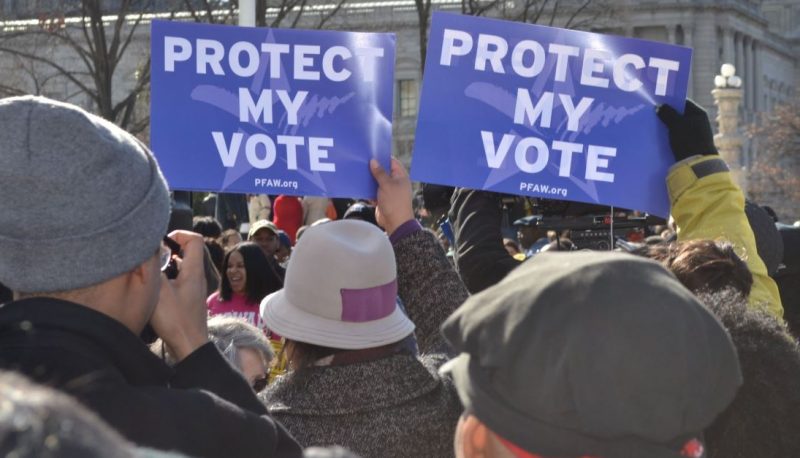How’s this for Orwellian logic: Taking the steps necessary to eliminate racial discrimination under the Voting Rights Act is itself unconstitutional racial discrimination.
That’s basically the argument that Alabama Republicans are using to defend their congressional gerrymandering in a Supreme Court case being argued October 4 called Merrill v. Milligan.
Here’s what happened: Alabama is a racially polarized state, so Black Alabamians living in congressional districts drawn to be majority-White are generally denied a chance to elect the representatives of their choice. The 2020 census showed that Black voters had increased as a percentage of the state population in the past decade, up to 27 percent. Under Section 2 of the Voting Rights Act, two of the state’s seven congressional districts should be majority-Black. Yet Alabama Republicans drew gerrymandered lines to pack Black voters into one supermajority-Black district, while dividing the rest into districts that were majority-White.
A unanimous three-judge panel easily found that this violated the Voting Rights Act and an important 1986 Supreme Court precedent interpreting the VRA. So the state of Alabama appealed. They claim that when the lower court took race into consideration when considering how the lines should have been drawn, they were the ones engaging in unconstitutional race discrimination. As Linda Greenhouse wrote in The Atlantic:
[Alabama’s] words invite a dramatic conclusion: that the heart of the Voting Rights Act, as interpreted by the Supreme Court a generation ago and as applied many times since, is unconstitutional.
This case could make it much easier to get away with exactly the kind of racially discriminatory gerrymandering throughout the country that Congress set out to eliminate when it passed the Voting Rights Act.

